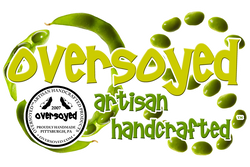
Every year in the fall, Jews around the world celebrate the Jewish New Year. This two-day festival is called Rosh Hashanah, which translates to “Head of the Year.”
The biblical name for Rosh Hashanah is Yom Teruah, which means “day of shouting or blasting.” For this reason, it’s customary to blow the shofar in the synagogue during the holiday. A shofar is a ram’s horn trumpet that was used by ancient Jews during religious ceremonies. The holiday begins at sundown on the Hebrew calendar date of 1 Tishrei. The month of Tishrei occurs either in September or October on the Gregorian calendar.
Here are some more facts surrounding this celebratory Jewish holiday:
- Along with celebrating the Jewish New Year, Rosh Hashanah celebrates the creation of the world.
- The holiday always begins 163 days after Passover.
- The first morning of this holiday will never fall on Sunday, Wednesday, or Friday.
- On each day of Rosh Hashanah, exactly 100 notes are blown on the shofar.
- The shofar is not blown if the holiday lands on Shabbat, or the Sabbath.
- Considered a “High Holy Day,” Jewish people are not supposed to work on this holiday.
- A popular greeting during this holiday is “shanah tovah”” which means, “for a good year.”
While many Jewish people enjoy a nice nap on the Sabbath, this is not the case with Rosh Hashanah. According to the Talmud, if one sleeps at the beginning of the year, his good fortune also sleeps. Some people take this so seriously, they don’t sleep at all during this holiday.
GET INVOLVED: Jewish people have many customs on this special holiday. Some Christians even take part in the Rosh Hashanah celebrations. Even though it’s a celebration, Rosh Hashanah is also a time of spiritual reflection and prayer. Some participate in a waterside ceremony called tashlich. During this ceremony, people walk to a fresh body of water and say a prayer. By doing this, they are symbolically casting their sins into the waters.
Other ways to participate include:
- Read about Abraham and Isaac in the Torah
- Have a gathering with friends and relatives
- Attend a Rosh Hashanah service at your local synagogue
- Sample a morsel from the head of a fish
- Eat challah bread and apples dipped in honey
- Wish all of your Jewish friends a Happy New Year
HISTORY: The origins of Rosh Hashanah are found in the Old Testament. Leviticus 23:24-25 states, “In the seventh month, on the first day of the month, you shall observe a day of rest, a memorial proclaimed with the blowing of the shofar, a holy convocation.” Through the years, the Biblical “holy convocation,” the “Day of Judgment,” and the anniversary of the creation of the world, were combined to create the official Jewish New Year. In the 2nd century C.E., the day became known as Rosh Hashanah.

